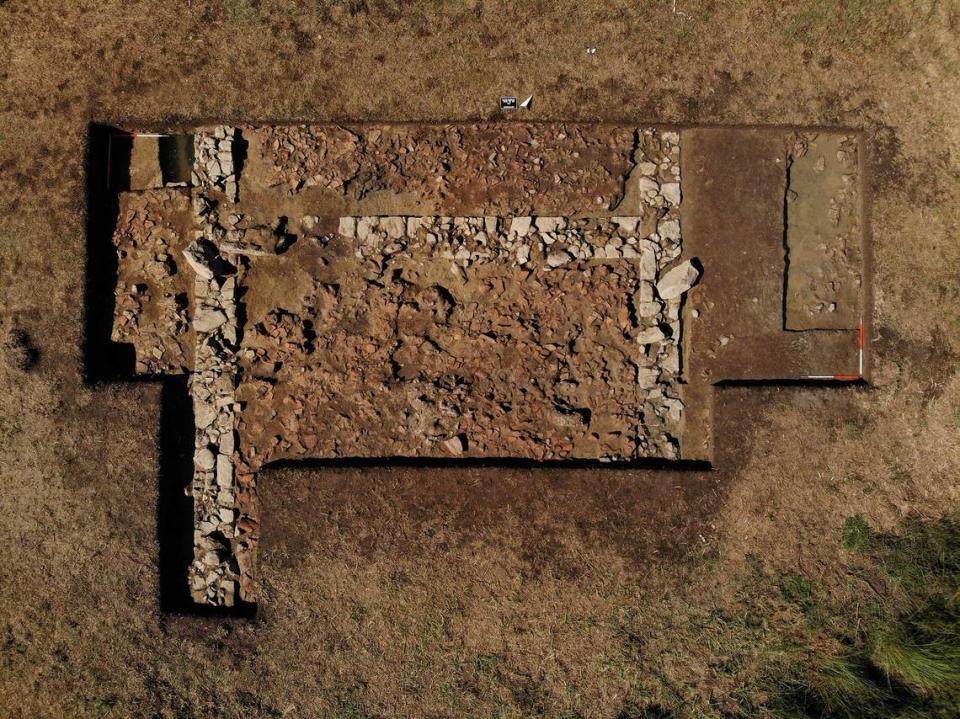From mythology to history? Archaeologists find sanctuary of Poseidon on Greek hilltop
Archaeologists in Greece discovered a set of ruins that might turn mythology into history.
The joint team of Greek and Austrian archaeologists set out on a five-year project to study the lost city of Samikon in southwestern Greece, according to a news release from the Greek Ministry of Culture and Sports on Oct. 7.
Excavations revealed the ruins of a building that may belong to the sanctuary of Poseidon, experts said. The ruins – discovered on a hilltop – match the location of Poseidon’s sanctuary described in an ancient Greek text, Geographica.
The ruins show a building about 30 feet wide and at least 90 feet long, archaeologists said. The 2-foot-thick walls outline a vestibule, like those on classical temples, a back chamber, and a room for the temple’s patron deity. Layers of roof tiles were found between the walls.

Archaeologists found one more distinctive clue: a fragment of a marble water basin used at ancient Greek sanctuaries for ritual washing.
The finds, dated to the sixth century B.C., “can be nothing other than an archaic temple located on the site of the sanctuary of Poseidon,” the Austrian Archaeological Institute said in a news release.

Poseidon, god of the sea, was a key figure in Greek mythology, according to Britannica. His weapon – and primary symbol – was a trident.
Research on the sanctuary of Poseidon and the temple ruins will continue in coming years, experts said.
Samikon is in modern-day Samiko, about 160 miles west of Athens.
Google Translate was used to translate the news release from the Greek Ministry of Culture and Sports.
500-year-old mural linked to Aztec god found under layers of paint in Mexico convent
Massive 1,700-year-old ancient Roman mosaic rediscovered in house in Syria, experts say
Hercules statue — 1,900 years old but still with rock-hard abs — found buried in Greece

